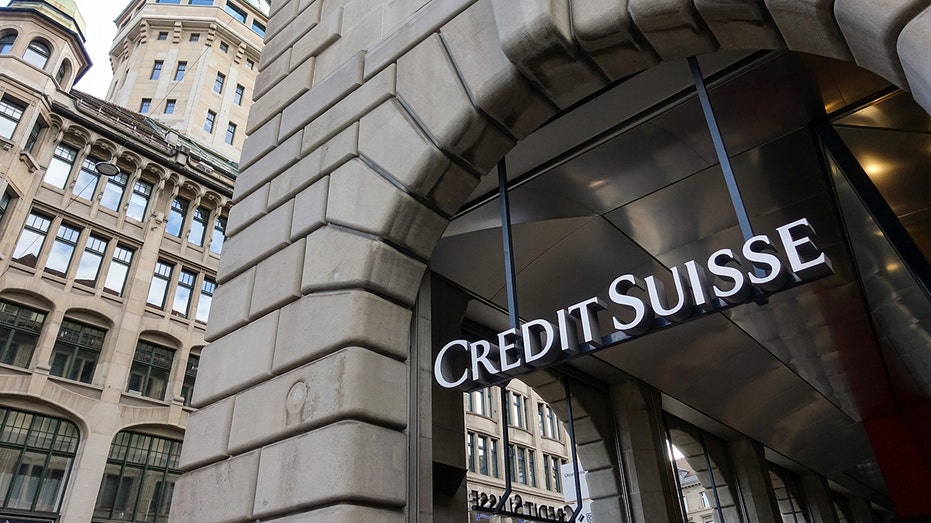Greensill’s key clients included West Virginia Gov. Jim Justice’s coal company
Most of Greensill’s revenue came from five clients, according to an internal Greensill report reviewed by The Wall Street Journal
Greensill Capital relied on a handful of clients for large portions of its revenue, including a coal miner owned by the governor of West Virginia, according to people familiar with Greensill’s operations and documents reviewed by The Wall Street Journal.
Bluestone Resources Inc., the coal-mining company owned by West Virginia Gov. Jim Justice, has borrowed about $850 million from Greensill, making it one of Greensill’s largest clients, the people familiar with Greensill’s operations said.
Representatives for Bluestone and the West Virginia governor’s office didn’t immediately respond to requests for comment.
GREENSILL CAPITAL FACES POSSIBLE INSOLVENCY AFTER CREDIT SUISSE SUSPENDS INVESTMENT FUNDS: WSJ
Greensill has long said that it works with millions of customers, according to its website, many of them small suppliers to corporate clients, and has partnerships with dozens of banks, insurers and companies.
But a handful of relationships had become crucial to Greensill in recent years. During most of 2019, more than 90% of Greensill’s revenue came from five clients, according to an internal Greensill report reviewed by the Journal. In 2020, it was about 70%, according to the report.

Greensill Capital relied on a handful of clients for large portions of its revenue, including a coal miner owned by the governor of West Virginia, according to people familiar with Greensill’s operations and documents reviewed by The Wall Street Jour
Other large clients included U.K. steel magnate Sanjeev Gupta and British wireless giant Vodafone Group PLC, according to some of the people.
Greensill was founded in 2011 by former Morgan Stanley and Citigroup Inc. banker Lex Greensill. It became embroiled in crisis last week when Credit Suisse Group AG froze $10 billion in investment funds that Greensill relied upon to fuel its business.
Greensill plans to file for insolvency in the coming days in the U.K. and is in talks to sell its operating business to Apollo Global Management Inc. the Journal has reported, citing people familiar with the matter. The sale would be for a fraction of its peak valuation of $4 billion in 2019.
Greensill’s loans were mostly short-term, and some customers without access to cash will need to find alternate sources of financing in the coming weeks and months. Apollo, through an insurance affiliate, is likely to fill in the gap for some, but not all, of Greensill’s clients, the Journal has reported.
Greensill specialized in an area known as supply-chain finance, a form of cash advance that lets companies stretch out the time to pay bills. Greensill packaged those cash advances into bondlike securities. Credit Suisse’s funds were a major buyer of those securities, giving Greensill firepower to expand its business.
CLICK HERE TO GET FOX BUSINESS ON THE GO
Credit Suisse sold the funds to insurers and other professional investors, classifying them as relatively low-risk, according to fund documents sent to investors.
In addition to Bluestone, Greensill’s other U.S. clients included several blue-chip companies and state government agencies, according to documents Credit Suisse sent to investors. More than half of the assets in the Credit Suisse funds were tied to clients in the U.S. as of January, according to the documents.
On Friday, Credit Suisse said it would liquidate the funds. Bluestone was among the companies in the Credit Suisse funds, according to documents sent to investors.
Mr. Justice is the billionaire governor of West Virginia who switched parties from Democratic to Republican in 2017. He owns several coal-related businesses in the region, and has settled a number of cases in recent years for alleged nonpayment of bills, according to court records published by the investigative journalism website ProPublica.
Supply-chain finance is almost always paid back with cash. But for one loan in 2018, the coal miner repaid Greensill in a combination of cash and equity warrants. More than half of Greensill’s profit for 2018 was tied up in $25 million worth of warrants that gave Greensill the right to own shares in the coal-mining company, the Journal reported earlier.
Last summer, Bluestone’s general counsel told the Journal the company had been working with Greensill since 2018 to improve its working-capital position. The portion of the fees it paid to Greensill that year in equity warrants “were very soon after redeemed fully in cash,” he said, without specifying further.
Another crucial relationship of Greensill’s has been with Mr. Gupta and his GFG Alliance Group of companies, according to people familiar with the matter. Germany’s banking regulators banned activity at a bank owned by Greensill after an audit was unable to provide evidence of receivables purchased from GFG Alliance, which owns steel mills and other industrial assets in a dozen countries.
A spokesperson for GFG said its operations are running normally and that it is making progress in its discussions to secure funding from other financial institutions.
CLICK HERE TO READ MORE FROM FOX BUSINESS
Vodafone has been a long-term client of Greensill’s. A supply-chain finance fund that Greensill set up with GAM Holdings AG was referred to inside both firms as the “Vodafund” because Vodafone was both an investor in the fund and received financing from it, according to people familiar with the relationship and an email reviewed by the Journal.
Vodafone is no longer an investor in the fund, according to the company’s spokesperson.
The Journal reported Friday that Greensill used the Credit Suisse funds to lend to two of its biggest outside backers, SoftBank Group Corp.’s Vision Fund and General Atlantic.




















